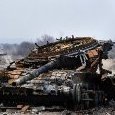Announcements
-
Topics
-
Latest posts...
-
11
Trump’s Vision for a Government Overhaul with RFK Jr. and Elon Musk Gaining Power
You spelt free speech wrong. (note, I am sure there were reasons other than the stated reason). -
11
Trump’s Vision for a Government Overhaul with RFK Jr. and Elon Musk Gaining Power
If my vision is correct it looks like two grey and one moldy orange 🤔 -
84
The World's Greatest Troll- I give you Trump
And he should throw in Peter Navarro and Paul Manafort to help round out the convicted felon club. -
36
Historic Low in Fertility Rates for England and Wales Signals Demographic Shift
The Health Survey for England 2021 estimates that 25.9% of adults in England are obese and a further 37.9% are overweight but not obese... The survey, published in December 2022, found that men are more likely than women to be overweight or obese (68.6% of men, 59.0% of women). People aged 45-74 are most likely to be overweight or obese. https://commonslibrary.parliament.uk/research-briefings/sn03336/#:~:text=Adult obesity in England&text=Obesity is usually defined as,%2C 59.0% of women). -
11
Trump’s Vision for a Government Overhaul with RFK Jr. and Elon Musk Gaining Power
Will the world's smartest businessman ever get his money back on Twitter? Or did he take a loss just to turn it into a far right propaganda outlet? -
2
/Featured Quiz 1 November - Weekly Featured Quiz - General Knowledge
I just completed this quiz. My Score 70/100 My Time 71 seconds -
80
English Tourist Riding Wrong Way on Jomtien Beach Road Crashes into Parked Car
Benefits, drugs, immigration..... all contribute to the downfall. What you going to do, the chimps are running the tea party! You might find some remaining pride among the older ones! -
74
Early voting - battleground states
Pennsylvania Judge Intervenes and Extends Early Voting After Bucks County Officials Blocked Trump Voters Pennsylvania Judge Intervenes and Extends Early Voting After Bucks County Officials Blocked Trump Voters Sources are linked within the article.
-
-
Popular in The Pub
-
Recently Browsing 0 members
- No registered users viewing this page.
.png.3b3332cc2256ad0edbc2fe9404feeef0.png)









Recommended Posts
Create an account or sign in to comment
You need to be a member in order to leave a comment
Create an account
Sign up for a new account in our community. It's easy!
Register a new accountSign in
Already have an account? Sign in here.
Sign In Now